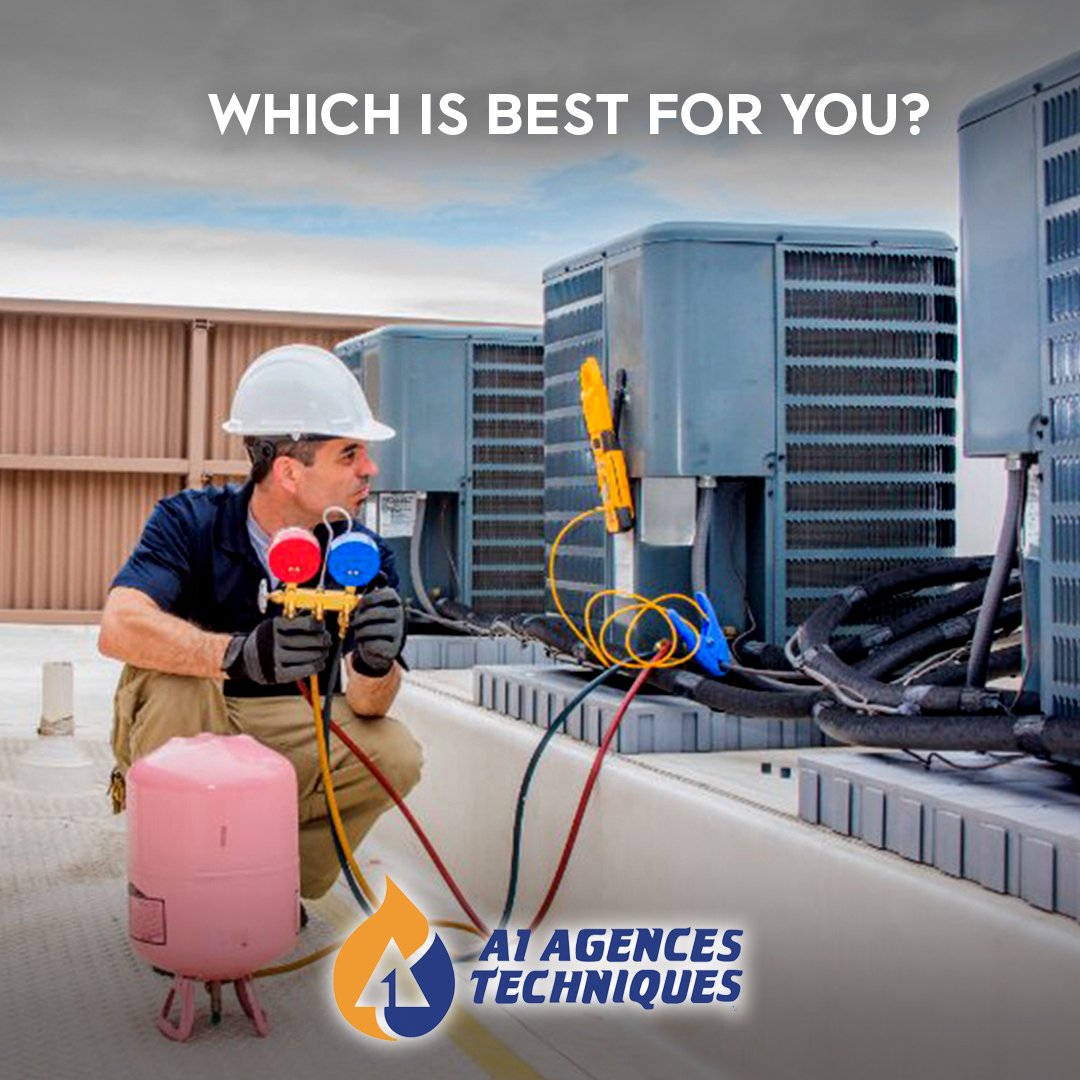Our city can be a quickly changing force when it comes to temperatures throughout the year. As a result, it can create unique challenges in keeping a steady and comfortable temperature inside your home. But for obvious reasons, winter and cold are the most fresh in our minds right now, so let’s chat about our heating options: Heat pump, electric furnace, and gas furnace.
Heat Pump
A heat pump is a versatile heating and cooling system that operates by transferring heat from one place to another. During the colder months, it extracts heat from the outdoor air (even in cold temperatures) and transfers it indoors to heat the home. In warmer months, it reverses the process to cool the indoor space.
Key considerations:
- 🔑Efficiency: Provide both heating and cooling functions, making them a year-round solution.
- 🔑Environmentally Friendly: Produce fewer greenhouse gas emissions than traditional furnaces.
- 🔑Long Term Savings: Though they can be more expensive to install upfront, their efficiency offers long-term savings.
- 🔑Performance in Cold Climates: In extremely cold climates, the efficiency of air-source heat pumps may decrease, requiring supplemental heating
Electric Furnace
Electric furnaces generate heat by using electric resistance coils. When electricity flows through these coils, they heat up, and a blower fan then distributes the warm air throughout the home. Key considerations:
- 🔑Simplicity: Electric furnaces are relatively simple in design, with fewer moving parts compared to gas furnaces, resulting in lower maintenance costs.
- 🔑Safety: Since electric furnaces don’t burn fuel, there’s no risk of carbon monoxide poisoning or gas leaks.
- 🔑Flexibility: Electric furnaces don’t require a flue or venting system like gas furnaces, allowing for more flexible installation.
- 🔑Operating Costs: While electric furnaces are efficient at converting electricity into heat, electricity tends to be more expensive than natural gas.
Gas Furnace
Gas furnaces use natural gas or propane to generate heat. They burn fuel in a combustion chamber and then use a heat exchanger to transfer the produced heat to the air that circulates throughout the home.
Key considerations:
- 🔑High Efficiency: Modern gas furnaces are highly efficient, with some models boasting AFUE (Annual Fuel Utilization Efficiency) ratings of over 95%.
- 🔑Lower Operating Costs: Natural gas tends to be less expensive than electricity in many areas.
- 🔑Performance in Cold Climates: Well-suited for colder climates, as they can provide consistent and reliable heat even in freezing temperatures.
- 🔑Maintenance Needs: May require more regular maintenance than electric furnaces due to the combustion process and the need to ensure safe operation and prevent leaks.
Ultimately, the choice between a heat pump, electric furnace, or gas furnace depends on various factors, including climate, energy costs, installation considerations, and personal preferences. Contact us today and let’s discuss which option is right for you.

